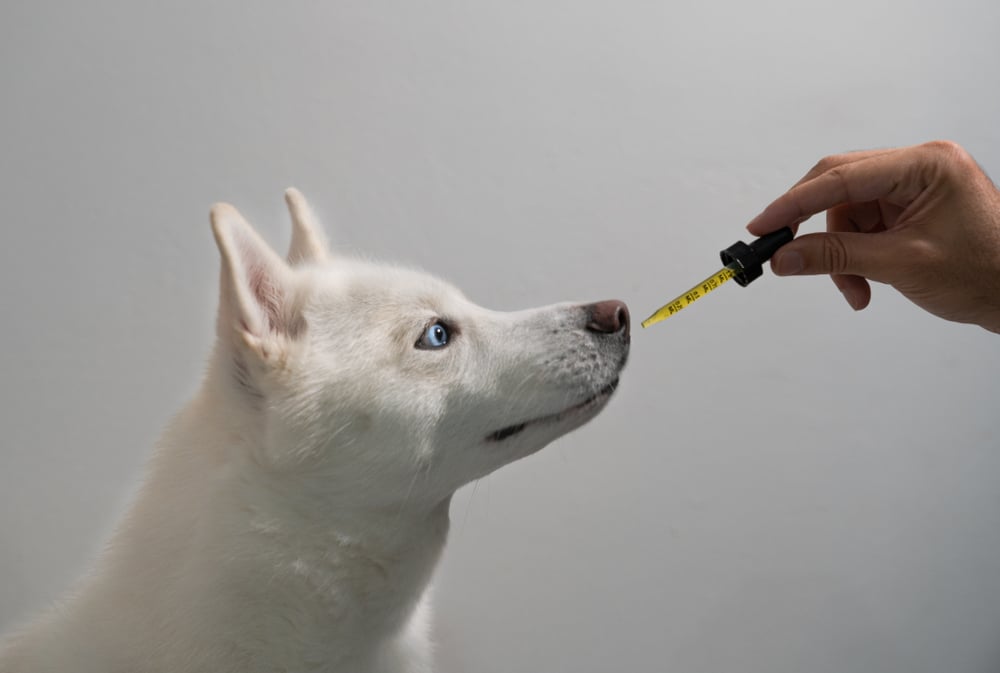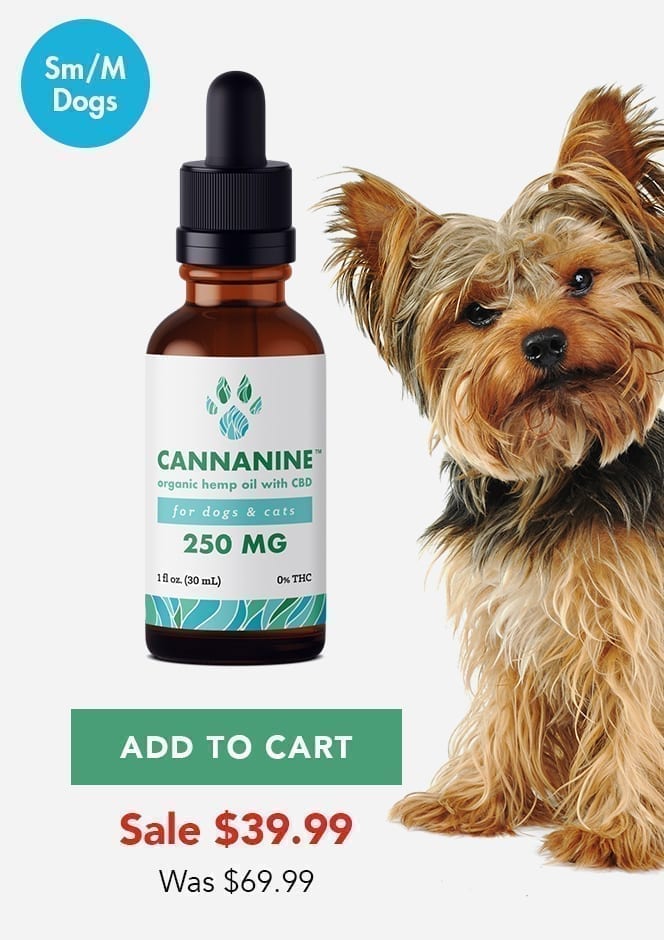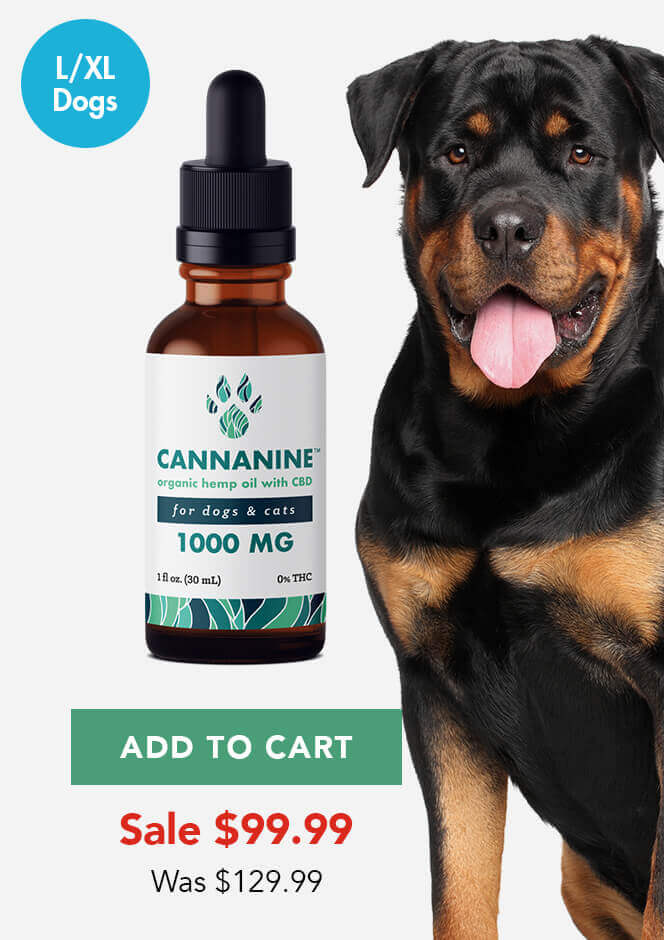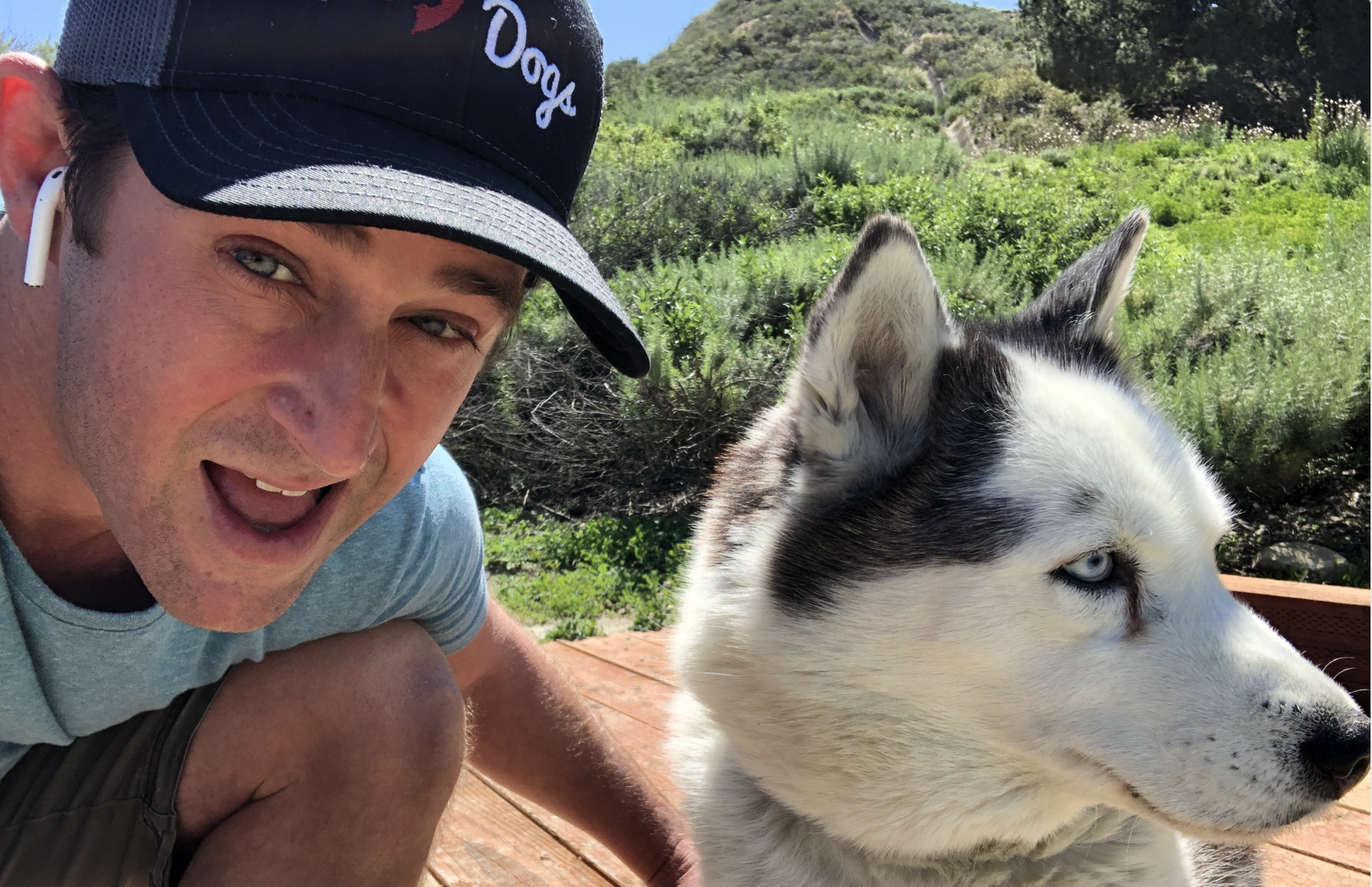![Can CBD Oil Help My Dog’s Collapsing Trachea? [Educational Guide]](https://cannanine.com/wp-content/uploads/2021/03/shutterstock_1721339821.jpg)
Can CBD Oil Help My Dog’s Collapsing Trachea? [Educational Guide]
Help! Can CBD Alleviate My Dog’s Coughing or Anxiety from Collapsing Trachea?
If your dog has ever experienced collapsing trachea, you know how scary it can be. When are dogs are experiencing coughing and discomfort, we’d like to do anything to give them some relief!
Unfortunately, there is no cure for a progressive condition like collapsing trachea. However, CBD may offer some relief for some of the persistent symptoms of collapsing trachea such as:
- anxiety
- pain
- inflammation.
To skip ahead and learn more about choosing an effective & safe CBD oil for your dog, view our ultimate CBD guide or buyer’s guide here. But first, let’s first dive in to the symptoms, risks, and treatment options for dog’s with collapsing trachea.
What Exactly Is a Collapsing Trachea in Dogs?
A collapsing trachea, also known as tracheal collapse, is a result of weakening in the windpipe, causing it to become squished and making it more difficult for your dog to breathe. Whereas the trachea should be circular, a collapsed trachea is a flattened oval shape and isn’t as efficient at bringing air to and from the lungs. It would feel like the equivalent of trying to breathe through a straw.
Most cases of tracheal collapse are thought to be congenital – inherited at birth – although obesity, diet, environmental factors, Cushing’s disease, and multiple respiratory illnesses may all be contributing factors.

What Are The Symptoms of Canine Collapsed Trachea?
- -A dry cough that may sound like honking
- -Coughing when pressure is placed on the windpipe, such as a leash pulling on a collar or picking the dog up awkwardly
- -Exercise intolerance
- -Difficulty breathing
- -Gagging or retching, especially while eating or drinking
- -Gums turning blue when stressed or excited
- -Secondary heart disease
- -A dog with both laryngeal paralysis and a collapsing trachea will wheeze when they inhale
- -Cough gets worse in hot, humid weather or exposure to smoke or dust
- -Abnormally fast breathing
- -Passing out
- -Unusual breathing sounds

How is Collapsing Trachea Diagnosed?
There are several different ways of diagnosing collapsing trachea. Your vet will probably start with a urinalysis and complete blood count in order to rule out other health issues, like kennel cough. Sometimes a simple X-ray can show the collapsed trachea. Fluoroscopy, a moving X-ray, can show a moving image of the trachea as your dog breathes in and out, but it is a specialized procedure that may not be available in your average vet’s office. An endoscopy – a tiny camera attached to the end of a tube that goes down your dog’s windpipe – can help your vet see any damage to your dog’s trachea, and tissue samples can be removed for additional analysis. Your vet may also do an echocardiogram to check your dog’s heart function since a prolonged amount of time without getting proper oxygen can affect your dog’s heart.

What Dogs Are At Risk for Collapsing Trachea?
If you have a small or toy dog breed, your dog may develop a collapsing trachea, so it’s important for you to understand what collapsing trachea is, what the symptoms are, and how it’s treated in order to prevent your dog from suffering needlessly before you take him to the vet for a diagnosis. And while larger dog breeds may also suffer from a collapsing trachea, small and toy breeds are significantly more likely to suffer from this condition. In particular, Chihuahuas, Lhasa Apsos, Maltese, Pomeranians, Pugs, Shih Tzus, Toy Poodles, and Yorkies are especially prone to developing collapsing tracheas. Being overweight increases the risk, so it’s very important to know the symptoms if you have a dog that could be at risk.
RELATED: A Buyer’s Guide for CBD for Dogs: 8 Things To Know Before Purchasing
What Are Some Treatment Options for Collapsing Trachea in Dogs?
The first thing you’ll want to do is replace your dog’s collar with a harness, which will help reduce the amount of pressure on your dog’s trachea. Mild exercise such as slow walks is best, and overexcitement should be avoided.
Mild to moderate tracheal collapse is typically treated with cough suppressants, antispasmodics, bronchodilators, and sedatives to help reduce coughing and anxiety. Your dog’s weight and environment will also be assessed. An overweight dog can get some symptom relief by losing some weight. A dog that lives with a smoker may get some symptom relief if the smoker avoids smoking in the house or near the dog.
Some holistic vets also recommend supplements that may contain glucosamine, chondroitin, and MSM.
Severe cases of collapsing trachea may require surgery, where plastic rings or a stent are placed inside the trachea (depending on the area of collapse) to help keep the airway open.
Collapsing tracheas can get progressively worse, so early diagnosis is key for optimal symptom relief. If your dog is displaying any symptoms of tracheal collapse, you should take him to the vet as soon as possible for a diagnosis.
3 Ways CBD Might Help a Dog with Collapsing Trachea

Unfortunately, there is no cure for collapsing trachea. While CBD will not fix the disease, it may help alleviate some of the symptoms experienced.
- CBD may alleviate pain caused by collapsing trachea: 3 studies have recently shown the benefits of CBD oil in providing pain relief to dogs. This relief may extend to the pain caused by the coughing symptoms from a collapsed trachea.
- CBD may help calm the inflammation caused by collapsing trachea: The anti-inflammatory properties of hemp within CBD are well known, and those benefits may extend to the inflammation caused by the dry coughing of collapsed trachea.
- CBD may help calm an anxious dog experiencing the symptoms of collapsing trachea: The calming properties of CBD are well known, and many pups suffering from separation anxiety, travel anxiety, or fear of loud noises have seen relief with CBD. This relief may also help a dog who is experiencing anxiety due to the coughing caused by a collapsed trachea.
How Do I Choose an Effective & Safe CBD Oil for My Dog’s Collapsed Trachea?
To learn more about choosing an effective and safe CBD oil for your dog, view our Ultimate Guide to CBD or our 8 Things to Know Before Purchasing CBD for Your Dog.
Choose The Right Relief For Your Pup
100% Money Back Guarantee
PLUS Up To 40% Off When You Shop Today







Popular Articles On CBD For Dogs
- How CBD Oil Can Help Reduce Your Dog’s Excessive Barking
- How Long Before CBD Oil Starts Working for My Dog?
- How Often Can I Give My Dog CBD Oil?
- How Long Do The Effects Of CBD Oil Last For Dogs?
- What Are Possible CBD Side Effects For Dogs?
- Top 5 Ways To Administer CBD Oil To A Dog
- How CBD Oil Can Increase Your Dog’s Appetite And Prevent Nausea & Vomiting
- How CBD Oil May Help Your Dog Sleep Better
- Can CBD Oil Help Your Dog’s Anxiety and Nausea In The Car?
- 4 Reasons Senior Dog Owners Are Flocking to CBD Oil
- CBD Oil and Gabapentin Dogs
- CBD Oil Tinctures vs. CBD Treats for Dogs: Which Is Better?
(Sources: Healthy Pets, WebMD Pets, PetMD)

















